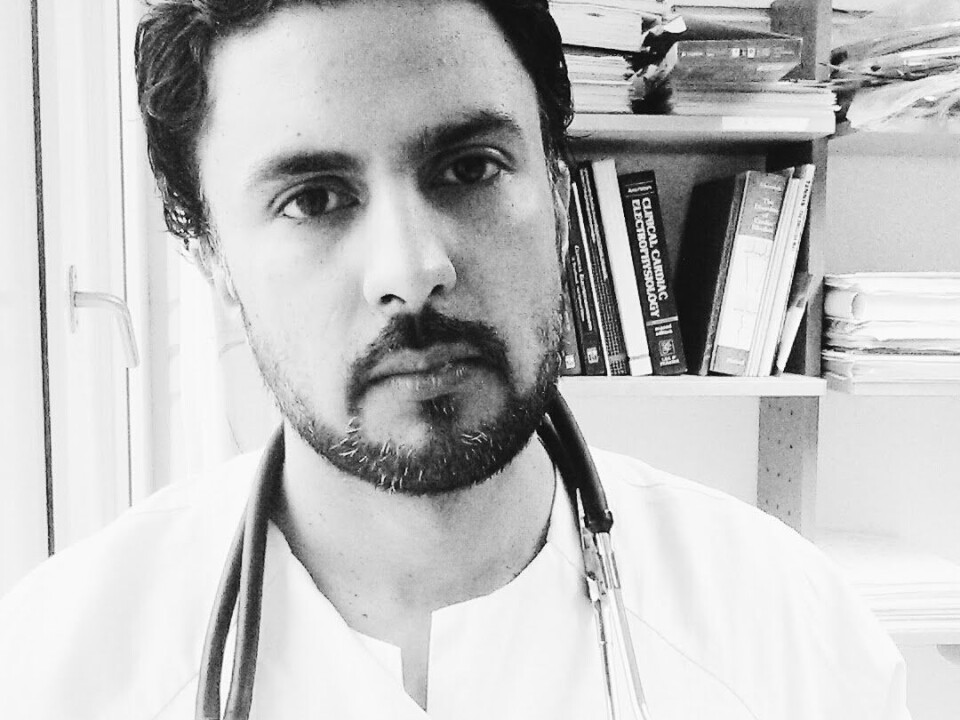
Does a heart stop after a certain number of beats?
We have checked out a common myth regarding the heart, and the answer is not as simple as you might think.
You might have heard that a heart has a certain finite number of beats it is capable of, something like one billion, before it stops by itself.
Animals with high pulse rates, like hamsters and mice, live short lives, while ones with low rates, like tortoises and whales, can live longer than us. The Galapagos tortoise’s heart slugs along when resting at just six beats per minute, while a cozy mouse might have a heart hammering at 240 times per minute. Maybe there is something in the claim.
But why would it be a disadvantage over time to have a heart that beats fast?
A normal heart rhythm for an adult human at rest is between 60 to 100 beats per minute (bpm).

A higher pulse rate than 100 bpm can be a symptom of disease. But it can be caused by something else. Can this be harmful to the heart?
We have asked Cardiologist Wasim Zahid at the Oslo University Hospital. He is also a member of a panel of experts for the Norwegian Heart and Lung Patient Organization.
High resting heart rate
The notion that you're only dealt out a certain number of heartbeats from birth – is a myth, according Zahid. That said, a heart which beats rapidly can be unhealthy.
“It is well documented that a high resting pulse is linked with a greater risk of heart disease and mortality,” says Zahid. He refers here to a Canadian summary, a meta-study of 40 comprehensive studies.
The meta-study indicates that high resting pulse rates can make for a poorer transport of blood to the body and an uneven heart rhythm (arrhythmia). In the worst case, it can lead to ventricular (heart valve) disorders and heart disease.
The cardiologist says that a high resting heart rate can be damaging even for people who are not diagnosed with heart disease.
Long-term, a high heartbeat rate makes the heart produce more of the hormone noradrenaline, an organic chemical which like adrenaline, mobilises the body and brain for action. It raises your pulse rate and stresses the body. High levels of noradrenaline (also called norepinephrine) makes blood vessels contract and as time passes make them less elastic.
Then the heart needs more energy to do its job and as time passes, worst case, this can lead to heart failure. This does not mean the heart stops beating, but it struggles and cannot pump sufficient blood to the body. It leads to symptoms such as shortage of breath and fatigue. Without treatment, the heart will gradually get worse and eventually it will stop beating.
Zahid says there is not just a link between high pulse rates and wear and tear of the heart. A high pulse rate can be damaging on its own, even if a person does not have high blood pressure, or hypertension.
This can be particularly bad for men. It has been found that a resting pulse rate from 83 bpm or higher can give a considerable risk of mortality from cardiovascular disorders.
A seldom exception
There are exceptions to every rule. On such is the condition called Inappropriate Sinus Tachycardia, or IST. People with IST live with a constant high pulse rate, usually over 100 bpm. They react very strongly to anything which normally increases heart rhythm. So heart rates can rocket when a person with IST drinks a cup of coffee, climbs a flight of stairs or gets a little stressed.
“Yes, IST is a very special and rather rare condition,” confirms Zahid
But oddly, in patients with IST no negative effect on the heart has been found, even though the condition can be tiresome to live with.
Control your pulse rate
There are things a person can do to lower the rate of their heartbeats. Innumerable studies have shown that physical exercise can help put the brakes on a pulse rate and lower the risk of cardiovascular disease.
People who experience an uncomfortably high pulse should of course consult their doctors about it.
The most important thing is to try and keep one’s pulse under control, as a lower rate of heartbeats is linked with a longer life.
———————————————————
Read the Norwegian version of this article at forskning.no
Translated by: Glenn Ostling
































